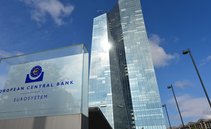The US consumer is not confident about the economy despite apparently solid evidence of the opposite.

US consumer confidence plummeted to a three-year low in September despite a history-making interest rate cut and decreasing inflation. Long-term consumer confidence is approaching levels akin to the 2008 financial crisis and a major economic recession.
The Consumer Confidence Index dropped 6.9 points to 98.7, the largest fall since August 2021 in the midst of the COVID-19 pandemic.
New York’s Conference Board, the organization that measures consumer confidence, said the worst drop was among those aged 35 and 54 and those making less than $50,000 a year.
Consumers fear increasing prices and declining jobs, the Conference Board noted. Although inflation is steadily declining, overall prices are still 20% higher than before the pandemic.
Inflation rose 2.5% year-on-year in August, less than the 2.6% expected. At its peak in June 2022, US inflation reached 9.2%.
The Federal Reserve cut interest rates by a historic 50-point last week. However, the interest rate cut will take several months to have an impact, while the straining effects of high rates are still felt.
“Prices, particularly at the grocery store and for gas, continue to rise and interest rate cuts will take some time to filter down to credit card rates and mortgages,” SMI Group CEO Kenin Spivak told The New York Post.
Are the recession fears founded?
Consumer expectations for the next six months dropped significantly to 81.7. During a recession, this value usually hovers above 80.
The expectations of consumers are not a real indicator of a recession, which is formally defined by the US Federal Reserve as two consecutive quarters with declining GDP growth.
Nevertheless, this value shows the status of consumer confidence for the near future. The United States will hold a general election on November 5th, and the economy is the most important issue among voters.
The current Democratic administration tried to polish its record of inflation and high rates by showcasing its other economic achievements. During the Biden presidency, unemployment reached a historic low of 3.4%, while GDP grew faster than any other developed economy in the world.
But unemployment is slowly rising, reaching 4.3% in the summer, also caused by rising interest rates.
The economy may be doing fine, but American consumers don’t feel the effects. And this could matter significantly in an election year.





